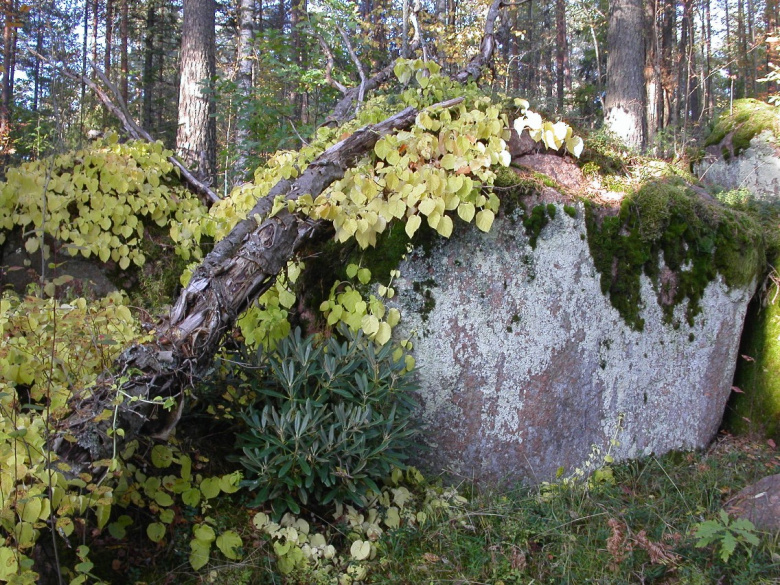The Ice Ages dealt severely with Finland’s flora, as they did on the other side of the world, in Japan. A variable group of evergreen rhododendrons can be found in the Japanese mountains which are believed to have survived the Ice Ages in warm coastal refuges. These relicts spread again as the ice sheets withdrew, and finally survived only in the mountains as the climate became too warm for them elsewhere. These changes are suggested as the reason for the variability nowadays of the species Rhododendron degronianum, with its different shapes of leaf, flower, and habit. The best individuals have a beautiful round habit, foliage covered in rust-red wool, and handsome flowers.
The Metternich’s rhododendron growing among the rocks on Mustila’s Etelärinne (Southern Slope) might, despite its small size, be the oldest rhododendron shrub growing in the Arboretum, as it was photographed there as early as 1926, when it was already of flowering size. The current shrub was born by layering, i.e. a side branch in contact with the ground has rooted.
Though this may be the oldest Metternich’s rhododendron in the Arboretum, it is not the only individual. As younger plants grow throughout the area it is interesting to observe their variability; botanists have separated them into forms and subspecies on the basis of variations in the number of petals, for example.


